A close reading from lines of “Paradise Lost” by John Milton focusing on the use of the word “light.”
by Axel Trujillo Ledesma
Learn how to write a close reading here.
This close reading is specifically from:
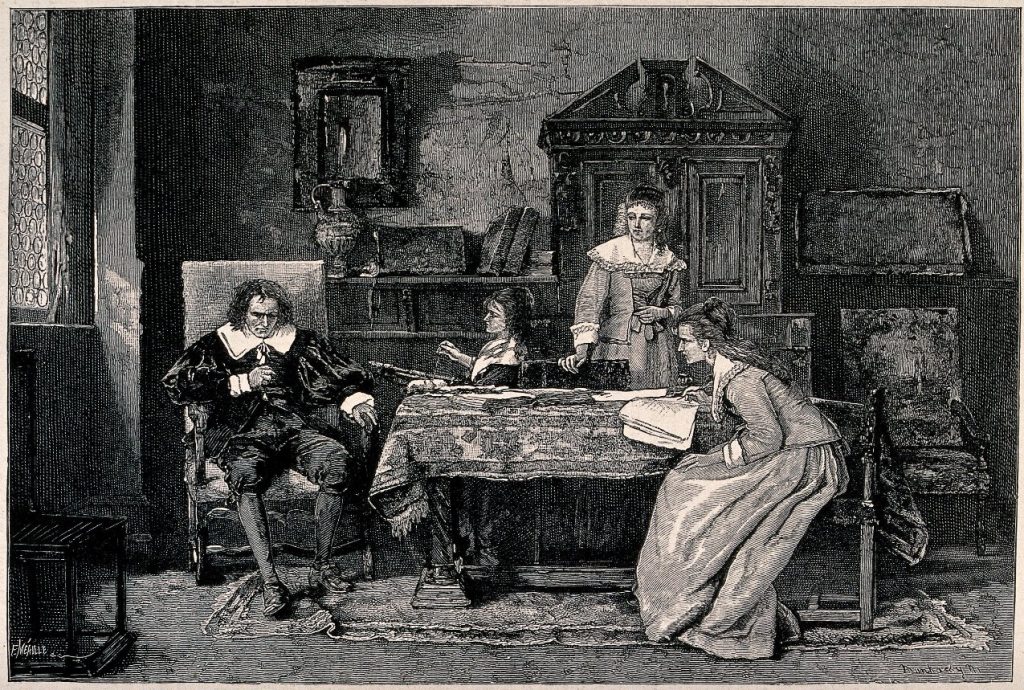
It is hard to read “Paradise Lost” and not hear John Milton’s life echo throughout the lines. The poem is full of remnants of his experience and philosophies but despite reimagining the fall of mankind and attempting to justify the ways of God to men, Milton writes about God and free will to justify the ways of man to men. John Milton imbues previously established cosmic characters with humanity and out of all of them it is Satan who receives most of Milton’s soul.
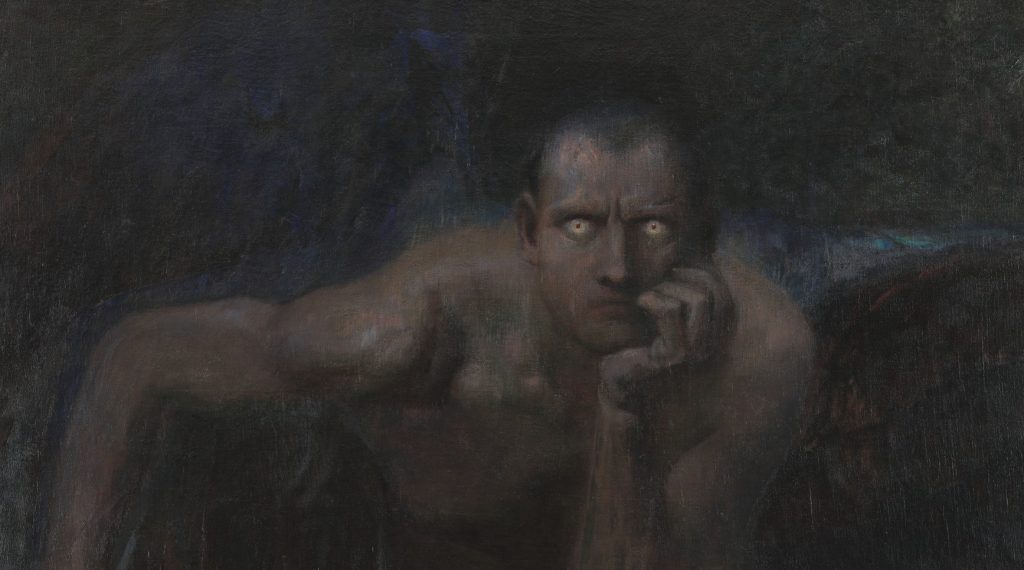
Close reading of Book 1
Satan may share John Milton’s personality but most importantly the poet and the fallen angel share the same punishment. Milton’s blindness and his age play a major role in shaping Satan’s hell. As described in Book 1 of “Paradise Lost”, Satan’s “Baleful eyes” may refer to Milton’s own loss of sight (56).
The “darkness visible” is Satan’s false sight or his ambitions (63), while the line “as far as angel’s ken he views” refers again to the limited sight John Milton and Satan now possess (59). Adding to the feeling of being blind or in the dark, the line; “Utter darkness” represents the Nothing or the void that haunts Milton every time he opens his eyes (72).
As for Satan, “for those flames no light” is the illusion of the fallen angel that he is not yet defeated; but, instead an exiled prince who can someday reclaim his throne (62-63). Hell is designed for the “rebellious” and it is a place of mind created by Milton, informed by his blindness (71).
Light and every mention of it, as well as, every allusion to it; is a manifestation of the author speaking through Satan. Dealing with the poet’s blindness, his very active political life and the consequences of said political life. In “Paradise Lost,” light and its absence relate to the loss of physical things. But; most importantly, they deal with the unacknowledged loss of the metaphysical meaning in life.
Be it Faith, political views, God, The crown or faith in the crown.
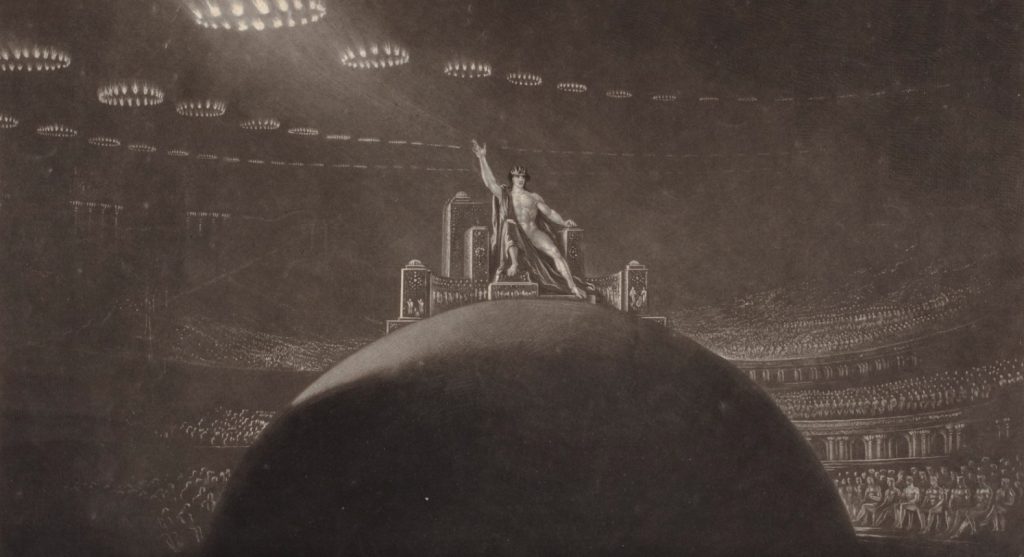
Close reading of Book 2
In Book 2 of “Paradise Lost”, even as the fallen angels are trapped the words used evoke light through sight. Satan has been banished and therefore hides in hell. The fallen angels are surrounded by and “infinite abyss” and believe that in a way they are safe from heaven’s retaliation because no sight can reach them, not even that of their former fellow angels (405).
The description of Hell is designed to overwhelm the senses but above all to overwhelm the reader’s sight not only for what can be seen but also by what is hidden in the darkness as well as who might be watching from afar.
Just as Satan defies the Throne of Heaven, John Milton defied the British Crown and at a point in his life he found himself hiding in “obscure” (132) or dark corners among friends while trying to “evade” (411) or avoid capture so the words used are reminiscent of the poet’s experience of not knowing who might be watching him, just like Heaven’s “strict Senteries” are always vigilant in case Satan resurfaces (412).
Book 2 not only presents the fears that someone like John Milton or Satan might experience while hiding but it shows how the lack of light or in his case sight “Eyes agast view’d” (615-616), fuels the imagination allowing it to replace the senses “worse then fables” (626-627), “feign’d or fear conciev’d” (628).
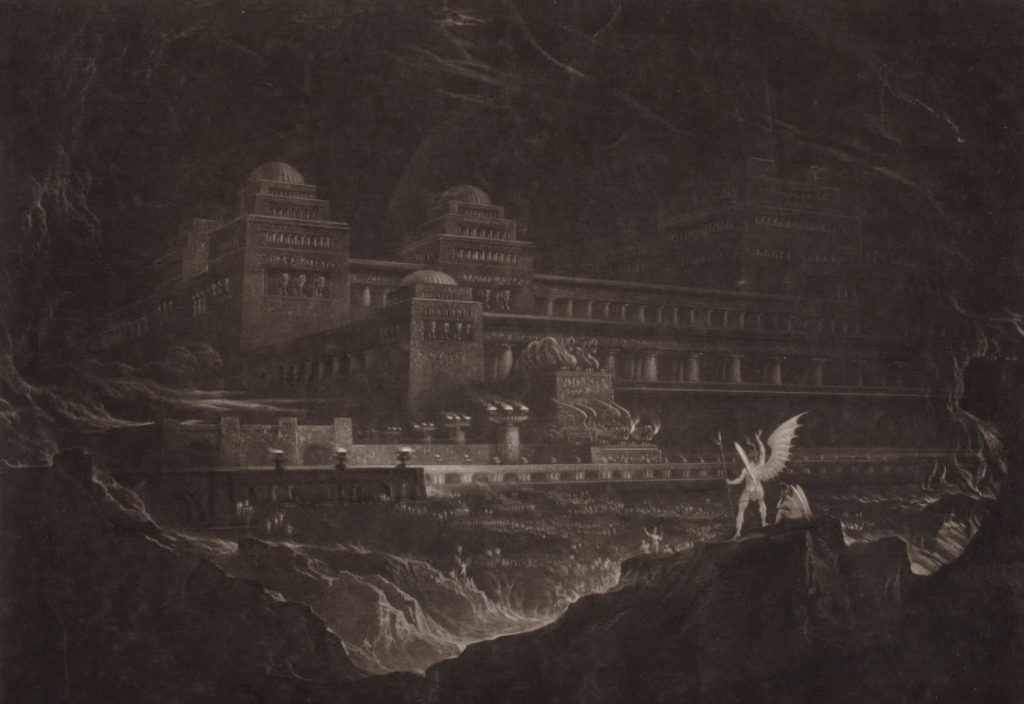
Close reading of Book 3
“Paradise Lost” starts clearly with John Milton as a narrator but that changes as the poem progresses. At the start of Book 3, what was merely the narrator’s power to get into the mind of the characters, especially Satan’s, transforms into a sort of interior monologue expressed by a Narrator (or Milton) that has now begun to be perverted (or infected) by Satan’s words.
Satan and Milton, start to drift into one another with more intensity than in previous lines throughout the poem.
When the narrator says “May I express thee unblam’d? since God is light” (3) it falls in line with the previous books; since it is Milton invoking the muses for inspiration. But, it can also be read as Satan’s own reflections that are shared with the narrator.
Satan starts the poem with a lack of light which can also be understood as a lack of God. Every mention of light, be it direct or indirect, is an invocation of God. Therefore, of Satan’s loss of his love and favour.
The uncertainty of who the speaker is exemplifies the poem’s key theme and feature; which is to present the reader with options, and endless opportunities of exercising their own free will. Paradise Lost is a poem that explores free will, without ever explicitly stating which answer is the correct answer.
Having cosmic characters that think and act like humans is what leads to contradictions like the anthropomorphizing of God by a human poet such as Milton. However, it is also the latent humanity in divine characters like Satan that accomplishes the poet’s goals of justifying the ways of God to men. Because all of a sudden these greater than life characters are now closer to men than ever before, Satan above all.
In Book 3 of “Paradise Lost”, the use of “light” as a synonym of God can also be interpreted as a synonym of Milton’s sight. However, when the word “light” is not present and the poem presents another similar term like “lamp” or alludes to the absence of “light” when using phrases like “Cloud instead” (45) then the word’s meaning can be understood as Milton’s own loss of faith and disappointment in the British Crown.
The disappointment implied is present in the use of the phrase “sovran vital lamp” (22) as well as John Milton’s regret for all his years wasted in a failed political revolution: “Revisit’st not these eyes, that rowle in vain, To find thy piercing ray, and find no dawn” (23-24).
So much of Satan’s punishment and a lot of his further reflections on the matter are always presented with words that create and mold unprecedented visuals and cosmic imagery designed to overwhelm the senses of mortals.
As stated in “that I may see and tell, Of things invisible to mortal sight” (54-55). Satan is in hell and no matter how much or how little there is to appreciate there, the darkness which is palpable, and the infinite abyss create a realm which is comprised of an infinite expanse of nothing.
Nothing is what John Milton always sees “ever-during dark surrounds me” (45-46). All the light and flames of heaven that Satan hoped to gain for himself are non-existent or “Cut off” (46), “Of Nature’s works to mee expung’d and ras’d, And wisdom at one entrance quite shut out” (49-50) and not even with an angel’s near divine sight does he see a way out of his own made hell “Irradiate, there plant eyes, all mist from thence, Purge and disperse, that I may see and tell”.
The narrator’s unique sight has abandoned him. Just like Milton’s did and after a life of fervent political debate and a near fatal career the disappointment and realization of an old blind man whom life has been wasted in pointless revolt shapes the eternal expanse of hell that comprises Satan’s ultimate punishment.
Check out The John Milton Reading Room to read Paradise Lost here for free!
If you enjoyed reading this then you might like:
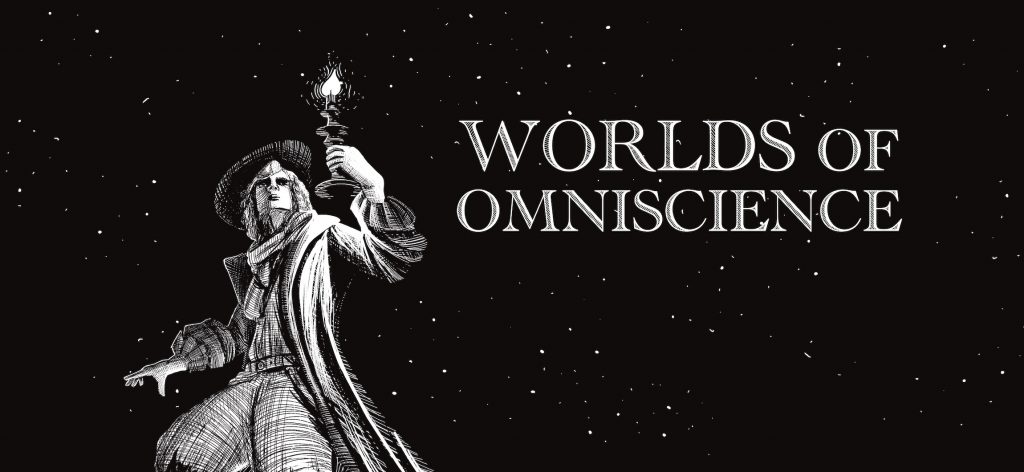


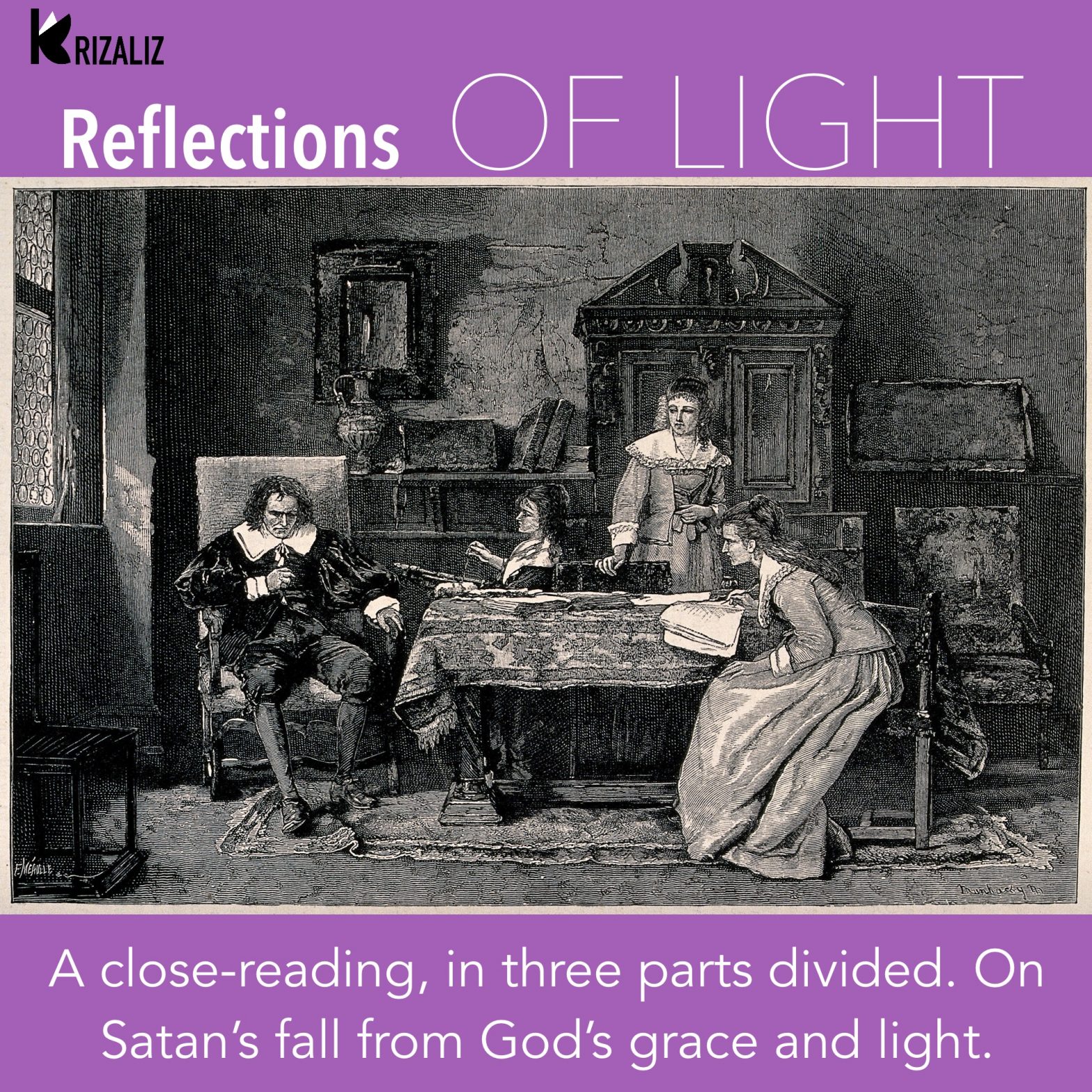
Leave a Reply
You must be logged in to post a comment.